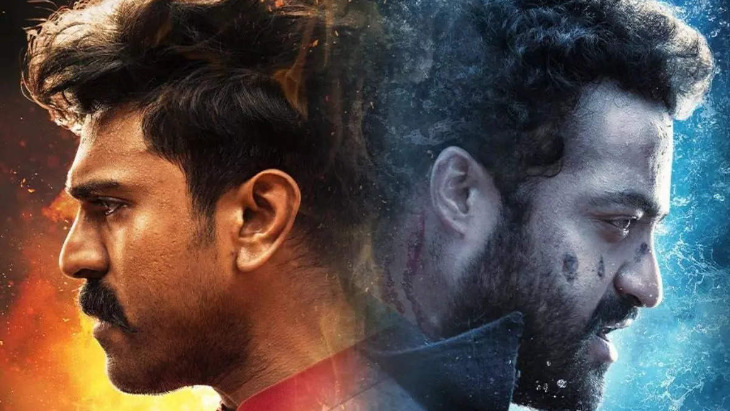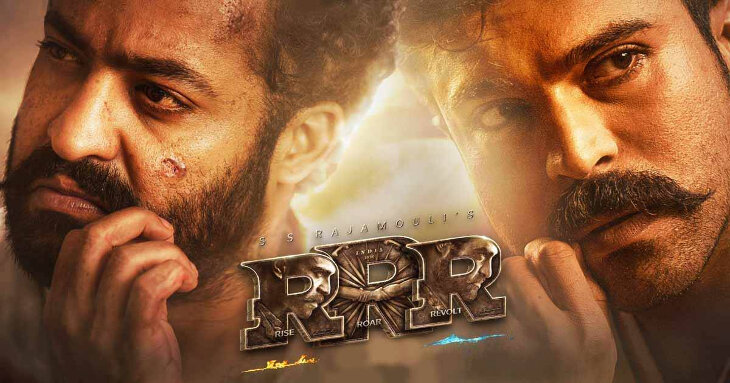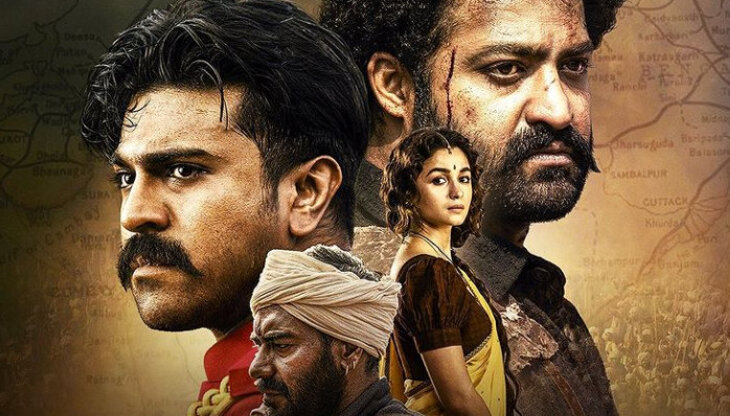 An Open Letter to University Presidents
An Open Letter to University Presidents


4 min read
AN unexpected crossover hit gives hope for a more understanding and open world.
RRR is the best movie of 2022. The three-hour Indian action-musical-romance-epic is a rip-roaring cinematic experience with tigers, bears, explosions, dance numbers, and a scene where two men jump off a bridge at the same time to save a child from an exploding train, then drop down so they can high-five underwater below a torrent of flames. And while most Indian action-musical-romance-epics would slip below the radar of most people around the world, RRR is experiencing something completely unexpected.
Indian cinema is having a moment. The most expensive Indian film to date, RRR has seen unprecedented success on a global scale. It’s the third-highest-grossing Indian film worldwide, and since its March 2022 release, it’s been re-released multiple times, seeing packed screenings full of cheering fans in the U.S., U.K., Japan, and elsewhere.
RRR is a rare phenomenon, an Indian film crossing over to audiences who otherwise wouldn’t have given it a first thought. And as audiences slowly continued returning to cinemas, it was a roaring affirmation of the power of large crowds sharing great movies together. But RRR is good for more than just the state of movies, which is why you are reading about it on a Jewish website.

Here's the thing: RRR actually has some familiar Jewish ideas. Much like the Hanukkah story, RRR celebrates a victory of the small against the many (the climax closes with a shot of the quote “The sun never sets on the English Empire”). Its characters win not because they have more powerful weapons or more advanced weaponry but because of their conviction in their beliefs. One of the heroes even quotes a Sanskrit verse that sounds mighty similar to a famous Jewish saying, “It is not your duty to finish the work, but neither are you at liberty to neglect it" (Ethics of the Fathers, 2:16).
But popular things aren’t good just because we can say they’re Jew-ish.
RRR has won a Golden Globe for best original song — a big deal for a non-English release — and has been generating real Oscar buzz, with significant critical recognition this awards season. And it’s not being celebrated solely as a great “international film.” Jews can attest as well as Indians that this is not the norm. Stories from outside a certain frame of reference (e.g. non-American, non-English, non-Christian) often make very little impact on the culture at large. And the world is better when that changes.
When more people see Indian cinema or watch authentic Jewish stories, we get the chance to dispel myths, open up hearts, and build a better, more understanding world.
Hate can often be tied to ignorance. Misconceptions, hurtful stereotypes, and othering can happen without exposure to people or their stories. There are still people in the world who think Jews have horns! Getting to know people through their stories is a way to open the world up to the possibility of connection. And while you can’t blame ignorance for all hate, ignorance is something we can manageably respond to. It's not just about one movie — it's about one movie becoming a gateway to more stories being accepted and considered.
RRR is full of cultural touchstones, with references to Indian, food, religion, and historical figures brought to the forefront. It’s a fictional film based on two real-life Indian revolutionaries who fought back against the British in the early 20th century. It’s also a fun movie and an emotionally resonant one without a drop of cynicism. RRR is the kind of movie that, once you open yourself up, makes it easy to connect with people from a background or culture you may not be familiar with, and it’s been beautiful to see the movie get accepted and honored accordingly. (It’s also important while celebrating the movie’s openness to consider the way RRR is more closed to certain other narratives — no great work is perfect.)

If you care about authentic Jewish stories being told, you should care about others’ stories being told as well. When more people see Indian cinema or watch authentic Jewish stories, we get the chance to dispel myths, open up hearts, and build a better, more understanding world. One where we can cheer two men who show a condescending jerk that there’s more than one way to dance at the party:
